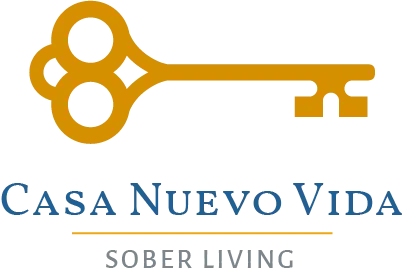At Casa Nuevo Vida, we encourage all of our patients to expand their minds to different forms of therapy. This is why we offer music therapy. Music therapy is an incredible way to aid individuals on their road to recovery.
Music: The Universal Language
Music is known as the language that can bring individuals from all walks of life together. No matter their background, religion, language, or culture, music can connect everyone. It allows for a creative space because not only can listen to music others make, you can make your own, as well.
Why is Music Important?
Music is important in society for so many reasons. In terms of communication, it allows humans to empathize with each other. They can do this by writing lyrics about thoughts and feelings for others to relate to. It can bring light to difficult situations of a person’s past that others listening may have experienced. Music is also an easy way to spread awareness on issues or information on certain topics.
How Can it Be Used as a Tool?
Music is often used as a tool of self-reflection and escape. It is a way to cope with reality by giving the mind something to occupy itself with. It allows acceptance of certain feelings and situations. Music without words can also be used to soothe someone’s mood and even regulate some of their bodily functions.
What is Music Therapy?
Researchers believe that human bodies work off of frequencies just like most everything else in the physical world. Through this, music therapy was created to help these frequencies in times of need. Music therapy aims to help meet the physical, social, emotional, and mental struggles of individuals.
How is it Used?
This type of therapy can use different sounds, movements, and vibrations to level the imbalances in the body and brain. By allowing the brain and body to consume these types of exercises, the hope is to calm nerves and lower stress levels. It can also be used to minimize pain from physical illnesses and provide long-term effects that other therapies can’t.
History of Music Therapy
Humans have been developing music for thousands of years. Researchers believe that the earliest instruments date back as much as over 40,000 years ago. They believe that music was used as an early way of modern communication.
How Music Therapy Developed
It is believed that music was first used by the Greeks in ancient times to cure ailments and provide treatment for mental illness. In terms of modern times, the earliest mention of music therapy was in the late 1700s.
From there, therapists started to use music consistently in the 1800s. After more trials, they slowly developed research and treatment programs. The first of 3 main developers was a man by the name of E. Thayer Gaston. In the 1940s, Gaston promoted the practice of therapy with music. This later became known as the music therapy we all know today.
Types of Music Therapy
There are two fundamental types of music therapy used in modern society. All branches of music therapy are categorized into receptive music therapies and active music therapies.
Receptive Music Therapy
These types involve the individual listening to the music or sounds. During these, the client is asked to respond to the music both verbally and non-verbally. The goal of this type is for individuals to experience a new sense of relaxation they may have been struggling to find before.
The six methods used in receptive therapy include relaxation, imaginal listening, song lyric discussion, song reminiscence, etc. All of these allow individuals to expand their minds on different ways of thinking through visual and listening activities.
Active Music Therapy
Active music therapy is described as being the physical appreciation and production of music. The type of exercises included in this therapy includes learning to play instruments, singing, dancing, and music production. Active music therapy encourages individuals to get moving and allows them to develop new skills.
How Music Therapy Impacts Individuals
There are countless ways that music therapy can help individuals. The benefits are endless, which is why we offer top-notch music therapy at Casa Nuevo Vida. We recognize that individuals respond well to these activities and techniques.
Benefits for the Brain and Body
The most important thing that music therapy gives individuals in recovery is a sense of achievement. During their addiction, a big source of it may have come from self-doubt and disappointment. In music therapy, they will learn new skills and expand their creativity. This will in turn heighten their sense of purpose and self-esteem.
Music therapy has been proven to aid individuals in memory enhancement and social development that may have been impacted by their addiction. It can also help introduce them to new genres and cultures and allow them to connect with other patients.
Mental Health and Music Therapy
Because of their addiction disorder, some patients may also develop co-existing mental disorders. Music therapy is a great way to treat these, while also treating their substance use.
Why is Mental Health Important in Recovery?
Stable mental health in recovery is important because it can be the catalyst of the addiction disorder. By getting a patient’s mood regulated while in treatment, it helps our staff keep them from falling back into old patterns. Treating mental health disorders alongside substance use disorders also provides patients with a shorter time spent in treatment.
How Can Music Therapy Improve Mental Health?
Music has been proven to help reduce feelings of anxiety and depression. It does this by giving individuals a relaxing way of stimulating their minds. Through this, levels of stress-inducing hormones like cortisol and adrenaline are released. This allows for an individual’s mind and body to regulate itself back to normal levels.
Listening to music can also increase dopamine production, which is chemicals in the brain the cause individuals to feel good. This allows clients to feel happier and reduce the pain and discomfort of their mental illness.
Who is a Good Candidate for Music Therapy?
A good candidate for music therapy is someone who is not responding well to traditional therapies like Cognitive Behavioral Therapy. This can also be someone who does not “relax” by sitting still. Music therapy allows expression and physical activity, and some patients respond better to this.
At Casa Nuevo Vida, we allow all of our patients to be honest during their treatment. If one type of therapy is not working for them, we allow them to express that.
5 Ways Music Therapy Can Help During Recovery
Some of the ways music therapy can help individuals on their road to recovery include:
A Way to Connect
Often, also, patients find themselves feeling lonely and like they have to go through addiction by themselves. Music therapy gives a way to connect to other patients in the facility. This is done through group activities and musical collaborations.
A Boost of Motivation
Low self-esteem is a huge cause of addiction. Feeling inadequate and unsuccessful can often cause individuals to turn to substances to cope. In music therapy, we want to redirect that attention to developing skills and hobbies. Patients can learn to play instruments, sing and even get dance lessons in this treatment program.
An Emotional Support
Emotional support does not always have to come in a physical form. Some of the best, most effective support systems come from listening to music. Certain songs and artists will allow patients to relate it to their own experiences. It will also give them away to express their struggles and emotions by singing and producing their music.
A Decrease in Stress
Listening to calming sounds and music is a very effective way to reduce anxiety and stress. It allows patients to increase levels of important chemicals within their brains and release the ones causing the stress.
An Opportunity to Be Active
Dancing often accompanies listening to music. Dancing is a great way to stay active and burn calories. When individuals are active, they often feel happier and have higher self-esteem. They also may find a passion through dancing and pursue that once treatment ends.
Music Therapy for Recovery
At Casa Nuevo Vida, we hope to open individuals’ eyes to the different possibilities of therapy. We offer music therapy as a way of release and expression. With its proven effectiveness, we believe it can work wonders on those wanting to be in recovery.
Please do not hesitate to reach out to us today for more information. Our staff will answer any questions you have regarding music therapy, as well as our other types of therapies available.
Resources:
Music therapy: Types and benefits for anxiety, depression, and more (medicalnewstoday.com)
Types of Music Therapy – Music Therapy Guide



